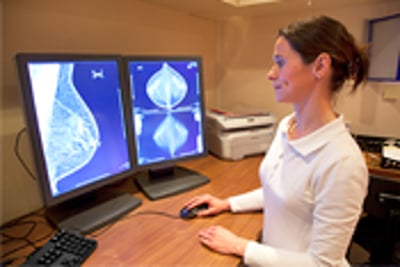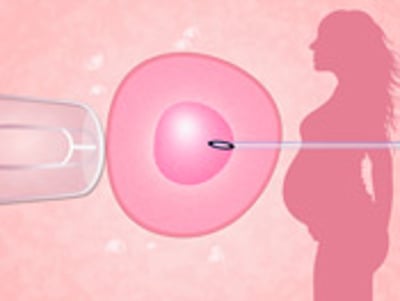FORCE's eXamining the Relevance of Articles for You (XRAY) program looks behind the headlines of cancer news to help you understand what the research means for you.
XRAY is a reliable source of hereditary cancer research-related news and information.
Learn more about the XRAY program
In portal: Breast Cancer, Categories Cancer Risk
Study : Breast cancer mortality among Hispanic women in the United States varies by country of origin
Most relevant for:
"Hispanic" is a broad ethnic category that includes people from numerous countries. When discussing breast cancer statistics, Mexicans, Cubans, Puerto Ricans and people whose families originated in Central and South America are typically grouped into one Hispanic category. A new study looked at whether the country of origin affected breast cancer prevalence and mortality rates in Hispanic women in the U.S. (10/25/16) Este artículo está disponible en español.
Read More
Study : Breast cancer screening should be tailored to a woman’s risk factors and breast density
Most relevant for: Women who are at high risk for breast cancer due to family history, dense breasts, LCIS, or multiple biopsies
The United States Preventative Services Task Force (USPSTF) recommends a screening mammogram every other year for women ages 50-74 who are at average risk for breast cancer. But do all patients in this category benefit from this screening regimen? 10/18/16
Read More
Relevance: Medium-High


Strength of Science: Medium


Research Timeline: Post Approval


Study : Rare mutations in PALB2, CHEK2, and ATM: how much do they increase cancer risk?
Relevance: Medium-High


Strength of Science: Medium


Research Timeline: Post Approval


Most relevant for: People who tested positive for one of the rare variants in CHEK2, ATM or PALB2 that are covered in this study
As multi-gene panel tests become more common, people are discovering they have mutations in genes that are not understood as well as BRCA. This can make it difficult to give patients accurate assessments of their cancer risk. For example, mutations in PALB2, CHEK2, and ATM are rare, but some specific changes in these genes are even less common. The goal of this international collaboration was to better understand the cancer risks of some very rare PALB2, CHEK2, and ATM mutations. The findings are relevant only to the specific mutations covered in this paper and do not apply to all people with mutations in PALB2, CHEK2, or ATM. (9/27/16)
Read More
Study : Does IVF increase a woman’s risk for breast cancer?
Most relevant for: Woman at average risk for breast cancer who have or are considering undergoing In Vitro Fertilization
In vitro fertilization (IVF) wasn't commonly used until the 1980s, so its long-term effects are mostly unknown. A new study suggests that the treatment does not increase a woman's risk for developing breast cancer. (8/23/16)
Read More
Relevance: Medium


Strength of Science: Medium


Research Timeline: Human Research


Study : Early research on a drug to prevent breast cancer
Relevance: Medium


Strength of Science: Medium


Research Timeline: Human Research


Most relevant for: Women with a BRCA1 mutation
Many researchers are interested in non-surgical options to reduce the higher-than-average risk of developing breast cancer in BRCA mutation carriers. This research study identified a type of drug, called a “RANK ligand inhibitor,” that may prevent breast cancer. Among mice that were genetically engineered to have no BRCA1 genes, those that were given the drug developed tumors less frequently than those that did not. While this is an exciting early study for BRCA mutation carriers, more work and human clinical trials need to be done before this can be used as a prevention therapy in humans. (7/12/16)
Update added 11/24/19: The RANK ligand inhibitor, denosumab is currently being studied as a possible breast and ovarian cancer preventive agent in human clinical trials.
Read More
Relevance: Medium


Strength of Science: Medium


Research Timeline: Human Research


Study : Breast cancer risk model updated for average risk women with genetic, lifestyle and environmental information
Relevance: Medium


Strength of Science: Medium


Research Timeline: Human Research


Most relevant for: Women at average risk for breast cancer
A number of factors are known to increase breast cancer risk, but some of these factors have not been included in models to predict breast cancer risk. This study looks at an updated model that includes some of these factors, such as genetics, smoking, and drinking. The goal of the model is to give women a more individualized breast cancer risk assessment. (6/29/16)
Read More
Study : Does light alcohol consumption affect your breast cancer risk?
Most relevant for: Women who drink alcohol and are concerned about their breast cancer risk.
Alcohol is known to increase breast cancer risk, but does that include light consumption? This study indicates that some breast cancer occurrences and mortality is due to light alcohol consumption. (06/21/16)
Read More
Relevance: Medium-High


Strength of Science: Medium-High


Research Timeline: Human Research


Study : Dense breast notifications are informative but hard to read and understand
Relevance: Medium-High


Strength of Science: Medium-High


Research Timeline: Human Research


Most relevant for: Women with dense breast tissue on mammograms
Some states offer women dense breast notifications that are meant to explain that dense breasts are risk factors for breast cancer and can hide cancer on mammograms, and to identify appropriate supplemental screening options. But recent research found that this information is often not easy to read or understand, which questions the usefulness of the documents. (6/7/16)
Read More
Relevance: Medium


Strength of Science: Medium


Research Timeline: Human Research


Study : Is breast cancer risk increased in women who test negative for the BRCA mutation in their family?
Relevance: Medium


Strength of Science: Medium


Research Timeline: Human Research


Most relevant for: Women from a family with a known BRCA mutation who tested negative for the mutation in the family
Some women who do not carry a BRCA mutation, but come from a BRCA-positive family, still develop breast cancer. This research examines whether these women are at higher risk for breast cancer, or whether their risk is similar to women in the general population. (4/19/16)
Read More
Article : New York Times report demonstrates need for genetic counseling, but doesn’t give the whole story
Most relevant for: People diagnosed with breast cancer
A New York Times report discussed how genetic testing could provide “grim data” without guidance for patients. While this is a valid concern, this report does not sufficiently emphasize certain important issues regarding genetic testing, particularly the need for genetic counseling by a health care provider with expertise in genetics before and after genetic testing. (4/5/16)
Read More